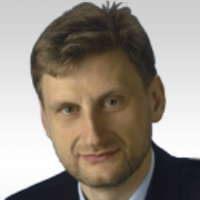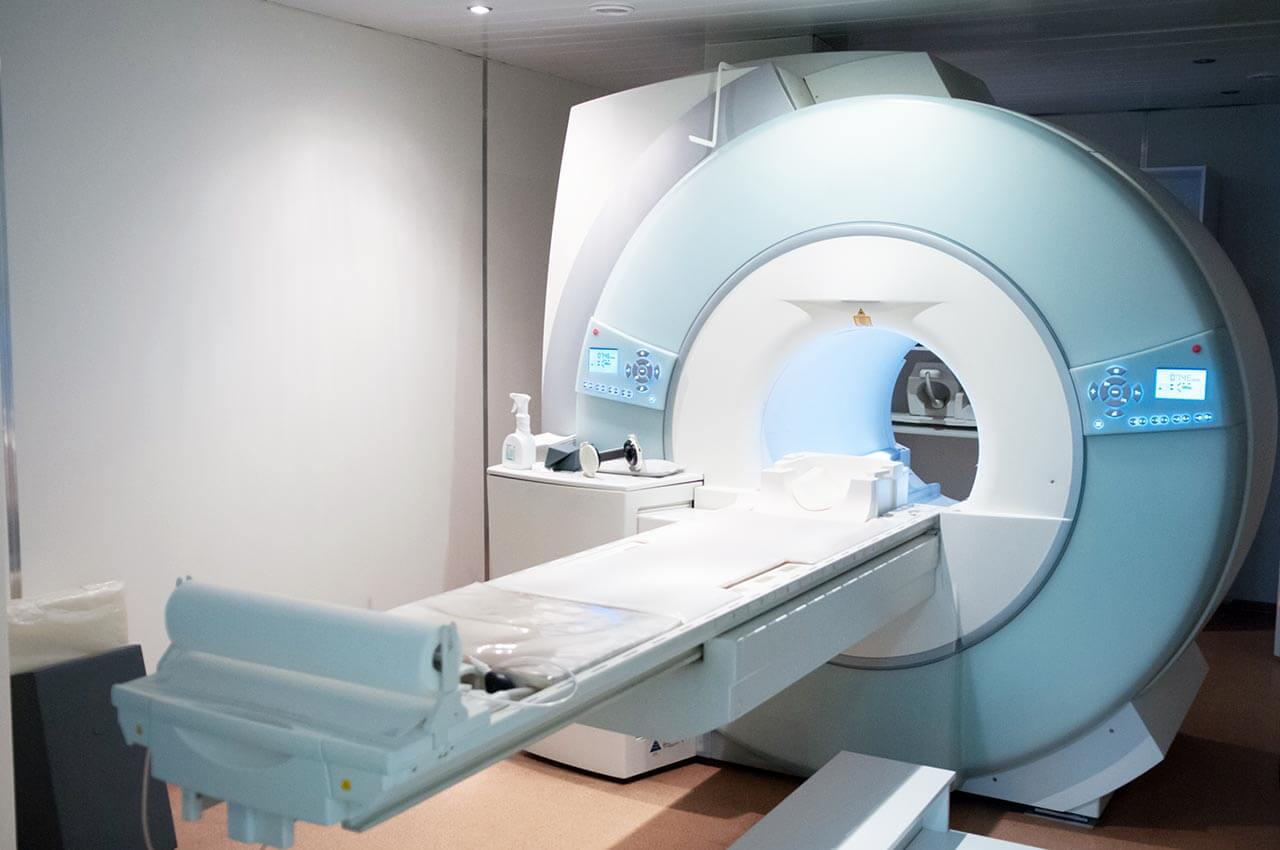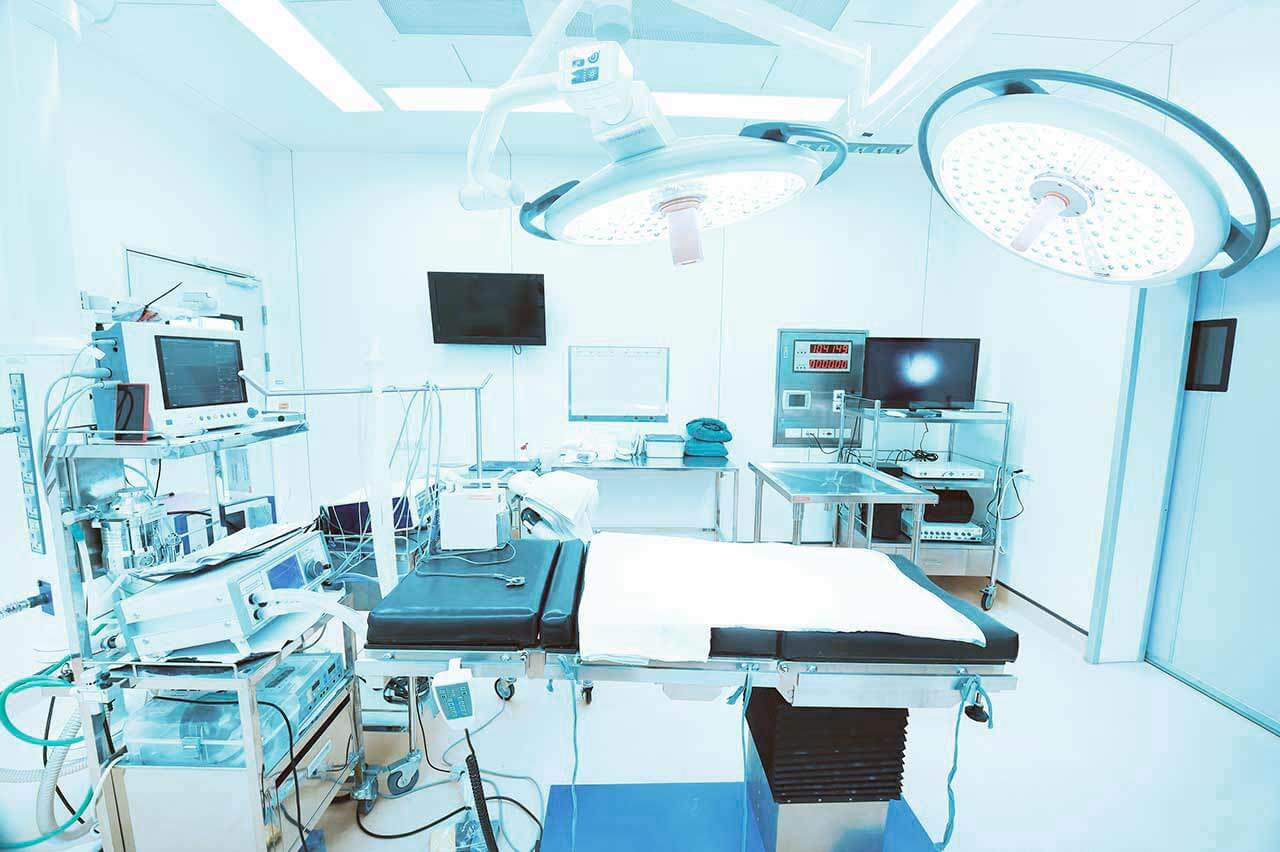
The program includes:
- Initial presentation in the clinic
- clinical history taking
- physical examination
- laboratory tests:
- complete blood count
- biochemical analysis of blood
- indicators of inflammation
- indicators blood coagulation
- ophthalmologic examination:
- ophthalmoscopy
- gonioscopy
- pachymetry
- perimetry (visual field test)
- computerperimetry
- Goldmann-primetry
- fluorescein angiography
- thermography
- capillary microscopy
- testing for optic nerve damage
- tonometry
- intraocular pressure measurement
- preparation according to preoperative standard
- treatment of congenital glaucoma with cryocoagulation
- symptomatic treatment
- cost of required medications
- nursing staff services
- elaboration of further recommendations
Required documents
- Medical records
Service
You may also book:
 BookingHealth Price from:
BookingHealth Price from:
About the department
The Department of Adult and Pediatric Ophthalmology at the University Hospital Tuebingen offers the full range of modern methods for the diagnostics and treatment of eye diseases. The department is one of the largest and leading medical facilities of its kind in Germany, therefore its specialists perfectly cope with extremely complex ophthalmic pathologies and skillfully perform high-level surgical procedures. The department is headed by Prof. Dr. med. Karl Ulrich Bartz-Schmidt.
The department has 77 beds, 6 ultramodern operating rooms for the surgical treatment. The department performs more than 22,000 inpatient and outpatient surgical interventions every year.
The main clinical focuses of the department include the diagnostics and treatment of the following diseases:
- Diseases or injuries in newborns and young children
- Retinopathy of prematurity
- Amblyopia, strabismus and double vision (diplopia)
- Inflammatory diseases
- Neuro-ophthalmic diseases
- Hereditary eye diseases
- Visual impairment
- Oncological neoplasms of the eye and its appendages
- Cataract
- Glaucoma
- Diseases of the lacrimal tract
- Retinal detachment
- Other ophthalmic pathologies in adults and children
Surgical spectrum of the department includes:
- Cataract surgery (including femto phacoemulsification)
- Intravitreal injections
- Eyelid surgery
- Lacrimal tract surgery
- Refractive lens surgery
- Corneal transplantation, including lamellar keratoplasty (certified Eye Bank)
- Surgery for complicated cataracts and glaucoma
- Interventions in retinal detachment
- Periocular and refractive surgery
- Surgical intervention for severe eye injuries
- Removal of tumors in the anterior segment of the eye and appendages of the eye
- Other surgical options
Curriculum vitae
Scientific and Professional Career
- 1982 - 1988 Study of Human Medicine at the Johannes Gutenberg University Mainz.
- 1988 - 1990 Training be receive a title of the Medical Specialist in Ophthalmology, Department of Ophthalmology, Krankenhaus Evangelisches Stift Hospital, Koblenz (Heads: Dr. D. Brambring, Dr. P. Schmitz-Valkenberg).
- 1990 - 1992 Training be receive a title of the Medical Specialist in Ophthalmology, Center for Ophthalmology, University of Cologne (Managing Directors: Prof. Dr. med. G. K. Krieglstein, Prof. Dr. med. K. Heimann, Prof. Dr. med. W. Rüssmann).
- 1992 - 1996 Senior Physician, Center for Ophthalmology, University of Cologne.
- 1996 - 1999 Leading Senior Physician and Deputy Head of the Division of Retinal and Vitreous Surgery (Prof. Dr. med. K. Heimann).
- January 1998 Venia Legendi in Ophthalmology, Faculty of Medicine, University of Cologne.
- Since 2000, Head of the Department for the Treatment of the Anterior and Posterior Eye Segment (Successor of Thiel and Kreisig), University Hospital Tuebingen.
- Since 2003, Deputy Medical Director of the University Hospital Tuebingen.
- 2004 - 2012 President of the Society of Radiology.
- Since 2007, Head of the Department of Adult and Pediatric Ophthalmology at the University Hospital Tuebingen.
- Since 2009, Member of the Expert Committee at the Institute for Examination in Medicine and Pharmacology.
- Since 2013, Member of the Executive Committee of the German Society of Ophthalmology (DOG), as a Vice President.
- Since 2014, President of the German Society of Ophthalmology (DOG).
Photo of the doctor: (c) Universitätsklinikum Tübingen
About hospital
According to the prestigious medical publication Focus, the University Hospital Tuebingen ranks among the top five German hospitals!
The hospital was founded in 1805, therefore it is proud of its long history, unique experience, and outstanding achievements in the field of medical care, as well as research and teaching activities. Nowadays, it is one of the most advanced medical institutions, which provides a wide range of general and highly specialized medical services. The hospital combines the state-of-art medical technologies in the field of diagnostics and the very latest treatment methods of a wide range of diseases.
The hospital has 17 specialized departments, which cover almost all fields of modern medicine and contribute to the top-class medical service in Germany. It treats about 367,000 outpatients and 74,000 inpatients annually. This testifies to the high authority of the hospital at the national and international medical arena. This is the first German hospital, which confirmed the high quality of healthcare and the effectiveness of service with a KTQ certification (in 2009).
Photo: (с) depositphotos
Accommodation in hospital
Patients rooms
The patients of the University Hospital Tuebingen live in comfortable single and double rooms with an ensuite bathroom equipped with a shower and toilet. The beds in the patient rooms are equipped with orthopedic mattresses that promote good and full sleep. There is a TV in the room, and it is also possible to connect a smartphone or laptop to the Internet. In addition, there is enough space in the patient room to receive 2-3 guests without inconvenience for the second patient.
The enhanced-comfort rooms include a hairdryer, heated towel rail, a large mirror, a direct dial telephone, a flat-screen satellite TV, a writing desk, free Internet access, a mini-bar and a refrigerator.
Meals and Menus
The patients of the hospital are offered tasty and healthy three meals a day: breakfast, lunch and dinner. Breakfast is served as a buffet, while for lunch and dinner there is a choice of several menus. Also, if desired, the patient will be provided with an individual menu. There are several cafes and cafeterias on the territory of the hospital, where one can have a tasty meal or enjoy a cup of coffee, tea and dessert.
Further details
Standard rooms include:
Religion
Religious services are available upon request.
Accompanying person
During the inpatient program, an accompanying person can stay with you in a patient room or in a hotel of your choice.
Hotel
During the outpatient program, you can stay in a hotel of your choice. Our managers will help you choose the most suitable option for you.




